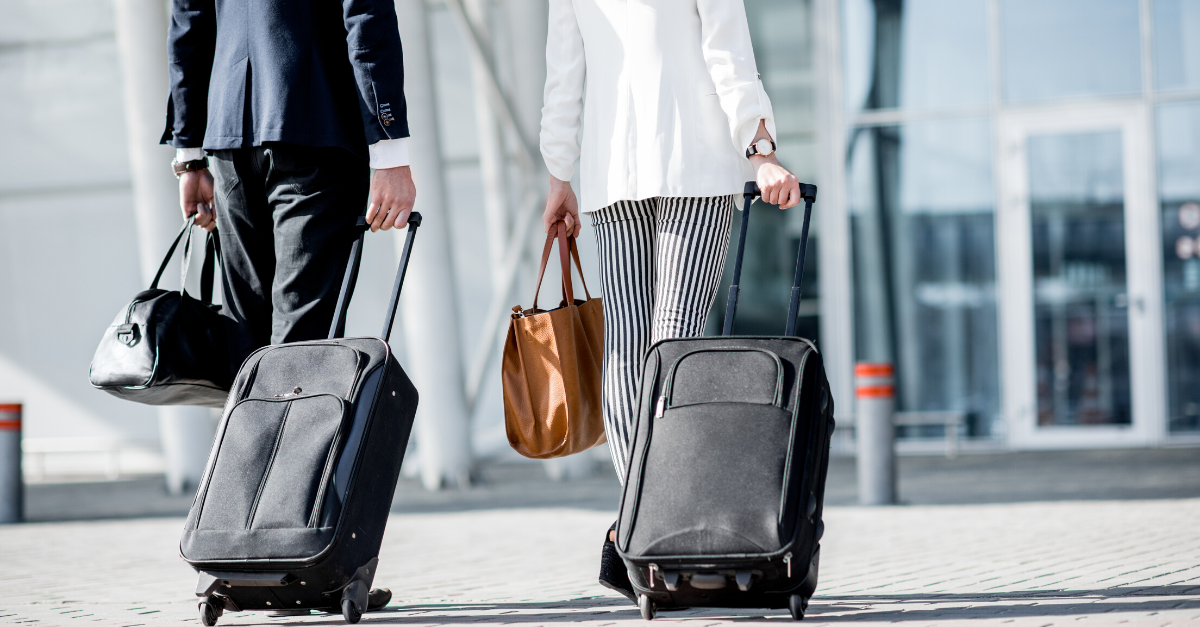A Per Diem, or daily allowance, is a set sum of money given by an organisation to an individual, usually an employee, to pay living expenses while travelling for business. Working with Per Diem rates can make life simpler for your organisation since it eliminates the need for workers to create, and employers to scrutinise, a complete expense report with accompanying receipts to substantiate amounts spent while travelling on business.
Learn more about working with Per Diems in Germany in our Per Diems for Dummies series.
Per diem are amazing...and terrible
In most jurisdictions, governments decided to allow the use of Per Diem allowances…under certain conditions. Per Diems are intended to cover employee expenses related to the business and not to serve as an additional perk, they are in essence non-taxable. That’s why most states have come up with maximum amounts, including Germany.
Did we already mention that the Per Diems in Germany, or “Tagespauschalen” in German, can be a pretty complicated business? Not only are there maximum rates for any country in the world, but also the exact amount of the allowance can vary per country or even per city of destination.
When you’re managing hundreds of employees travelling to a large number of different countries every year, it adds up to an enormous amount of administrative work.
But once you get to terms with this workload, there’s also lots to like about the system — both for employers and employees. Businesses, on the one hand, benefit from certainty and predictability in their travel budgeting. Employees, on the other, don’t have to keep documentation for every coffee they purchase on a trip, as long as they stay within the limits of the allowed amount.
The maximum Per Diem rates are usually quite reasonable.
The bottom line is, it’s a lot of stuff to deal with. But we can help.
Show me the money
Depending on the duration and the location of a business trip, companies can give their employees a set amount of money every day — that’s the per diem. The overview of the maximum amounts is defined in a separate regulation, based on the Einkommensteuergesetz, the German Income Tax Act. There are different rules for travel within the country and international trips.
Trips within Germany
For domestic business trips, employees can receive the following Per Diems in Germany:
Multi-day trips:
- €28 for every 24 hours that they’re away from their home and primary workplace
- €14 for the day of departure and arrival, if the employee doesn’t spend the night at their own home
Single-day trips:
- €14 for the calendar day if the employee spends at least 8 hours away from their home or primary workplace.
- €0 if the trip does not exceed a duration of 8 hours.
The standard amount for an overnight stay during a business trip of several days within Germany remains €20. This amount can be claimed if there are no receipts available – provided that the compensation is handled through the employer.

Trips outside of Germany
When employees embark on an international trip, different rules apply.
The German government sets per diem amount for every country according to the cost of living there. Every year a new document is released with all amounts adjusted to the new situation in the various countries.
In 2021 countries such as Ireland, Gambia and Kuwait experienced the sharpest increase in Per Diem (on average more than one-third compared to 2020). In contrast, the rates for the Republic of Korea, Burundi and parts of China are significantly reduced.
There are three different rates per destination:
- The rate for 24-hour absence from home and primary workplace (“Verpflegungsmehraufwand“)
- The rate for the day of arrival or departure and in case of an absence that lasts for more than 8 hours per calendar day
- The rate for the cost of an overnight stay (“Übernachtungspauschale“)
All amounts are listed per country, but exceptionally expensive cities have their own adjusted rate — life in the capital or big cities can be considerably more expensive than in the countryside and the regulation of Per Diems in Germany takes that into consideration.
For example, according to the new rules of 2021, this is what a German employee travelling to London can claim:
- €62 per full 24 hours
- €41 for the day of arrival and departure
- €224 per overnight stay
Verpflegungsmehraufwand
It’s not only the Per Diems in Germany that can be complex. The German language itself is home to some long words, and this one is a prime example that is also widely used.
Roughly translated to meal allowance, it refers to the daily allowances for business travellers, excluding the Übernachtungspauschale. Since the Übernachtungspauschale is often paid for directly by the employer anyway, Verpflegungsmehraufwand and Tagespauschale are quite often used interchangeably.
Special expense categories
Even though the basic rules of the Verpflegungsmehraufwand can already seem complex, they don’t cover all cases. When spending money on specific categories, a specific regime may apply.
Meals
Employees on a business trip need to pay close attention to the meals they’re having. When these are offered at no cost, or when meals are provided as part of reimbursable travel or lodging, a percentage needs to be deducted from the allowance per calendar day.
An example of this could be a free breakfast supplied by the hotel where the employee is staying or a complimentary dinner offered at a conference. For 2021, the deductible percentages are:
- Breakfast: 20%
- Lunch: 40%
- Dinner: 40%
Important to note is that this means that the total allowance per day is reduced to zero when all meals (breakfast, lunch and dinner) are provided.
Entertainment
This category is a peculiar one — for an entertainment expense to qualify, the entertainment has to have been offered to a third party as well. Entertainment expenses solely on behalf of employees working for the same company will not be accepted, an external party has to be involved.
Also, invoices for entertainment expenses need to adhere to certain additional quality standards.
The following information needs to be visible on the document for it to be reimbursable:
- Name of employee or employees
- Name of the people that were ‘entertained’
- The reason for entertainment
- Place, date and signature

Some particularities of Per Diem in Germany
There are some additional conditions to take into consideration.
- If the employee goes on multiple day trips during the same day, all hours can be added together
- Employers can only offer tax-free reimbursement to employees for three months of continuous business travel. This period can be restarted after a four-week break. This is known as the “3-Monatsfrist” or “3-Monatsregelung“.
- Professional drivers can claim a Per Diem of €8 for every night they spend sleeping in their vehicles on a multi-day trip in Germany
- When activity begins after 4 PM and ends before 8 AM the next day, the total time can be attributed to one entire calendar day
- All expense invoices should be addressed to the company’s corporate address
- If invoices are over €150 they’re required to note the employer’s name, address and VAT amount
- All original expense documents, like receipts and invoices, need to be physically or digitally backed up in the EU
How Rydoo can help you manage your per diem in Germany
Using an advanced expense management tool doesn’t just make it easier to enter expenses for employees — it can also save administrative teams a lot of time.
Rydoo is perfectly equipped to deal with the complicated reality of the German per diem system and the 3-months rule (Dreimontatsfrits) based on your company’s needs.
Together with our partner Deloitte, we’ve worked hard to integrate a host of features for our German customers, making sure we offer an experience that’s perfectly customized to local needs.
Rydoo collects all government-set maximum rates and makes sure they are duly updated. In case your company has its own per diem rates, our dedicated Rydoo team can upload and maintain them for you.
All your employees need to do is enter their trip details in the Rydoo app via their smartphone and everything is automatically calculated based on the rules set by your company. The traveller can then submit all due per diem expenses for approval in one simple tap.
To make life even simpler for your finance team, Rydoo has designed the three-month rule report, in which your team will receive a list with all approved per diems created by any employee on the German payroll and pre-categorizes them as tax-free or taxable based on the German 3MR legislation. You can read more about it here.
Rydoo’s app is in perfect compliance with German tax law. For example, when a meal has been entered on the same day as a per diem, a warning is sent out to both the user and the controller.
This way, all-expense information is parsed correctly without leaving room for abuse of the system.
All of this is on top of our regular services, including real-time expense management for the entire company. Employees on the road can easily upload their receipts through the expense management app, while managers are able to approve or decline them just as quickly.
As you can see, dealing with the German system definitely has its pros and cons, but one thing is for sure — Rydoo makes it a lot easier.
Want to know more about Per Diems in the UK? Read more here.



